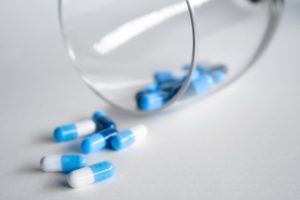Most people know what depression is but don’t realize that there are all different types of depression. In this blog, we’ll discuss what treatment-resistant depression is, as well as some possible causes. If you experience depression that doesn’t get better with typical treatment methods, consider reaching out to a mental health professional. Getting support can be incredibly helpful. It is often the first step toward alternative treatment options that may help alleviate your symptoms.
Treatment-Resistant Depression
Many different interventions, such as medication and therapy, can be used when an individual is experiencing depressive symptoms. However, for those with treatment-resistant depression, typical interventions don’t provide results. Individuals may go through intensive therapy or take a high dose of a certain psychiatric medication and still not find relief from their symptoms.
In some cases, symptoms can improve temporarily but then regress. This is still considered to be treatment-resistant depression.
Possible Causes of Treatment-Resistant Depression
Treatment-resistant depression can look different in every case, so there isn’t one sole cause. However, a few factors that can influence the development of treatment-resistant depression include the following:
Substance Use
Addiction is one of the biggest causes of treatment-resistant depression. Abusing substances can make it difficult for other interventions to work. Therefore, eliminating substance use from your routine can be a good place to start if you’re experiencing treatment-resistant depression.
Misusing or Stopping Medications
Not taking medications as they’re prescribed can lead to treatment-resistant depression. This can include not taking enough medication, taking too much, not taking it properly, or stopping your medication altogether.
Negative Drug Interactions
Drug interactions are another factor to look at closely. If you use drugs or alcohol or take multiple different prescriptions, it’s possible that the interactions between these substances could be holding you back from healing. Consider speaking with your doctor about all your options.
Other Mental Health Concerns
Co-occurring disorders are another important thing to note when it comes to treatment-resistant depression. Having multiple diagnoses can impact your treatment possibilities and determine what might work best for you. It’s essential to make sure you’re being open and honest with your mental health professionals about all of your symptoms.
Dealing with depression isn’t easy, especially if it doesn’t seem to respond to treatment, but there are many options to can consider. The Avalon Malibu team has experience working with treatment-resistant depression and we would love to share some information about our services with you. Don’t hesitate to reach out to our team and learn more about the many services we provide here at Avalon Malibu. If you’re dealing with treatment-resistant depression and want to know what options you have, give us a call at (844) 857-5992.










